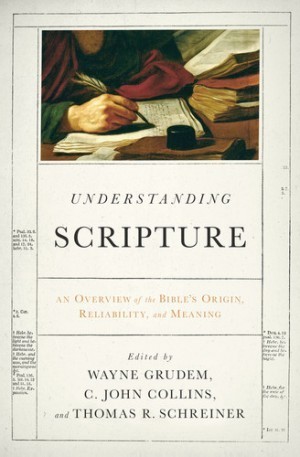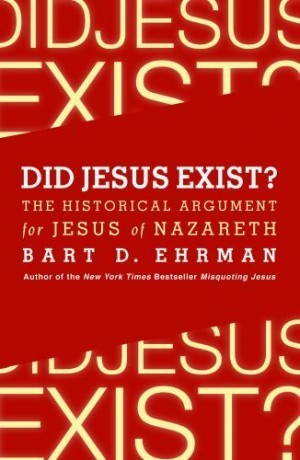Justin Taylor's Blog, page 223
April 2, 2012
Strength in Weakness
Few things bring our weakness to the surface like seminary. Spending all day with classmates who read faster than you, memorize paradigms more easily than you do, and preach better than you do pours gasoline on the flames of our insecurity. Ongoing moral failure–for young men in today's hypersexualized world I am thinking especially of sexual failure, though spiritual pride, laziness, envy, intellectual haughtiness, and a bent toward divisiveness also reveal our weakness.
Seminary gathers up all our latent insecurities and forces them before us. We begin to ask questions of ourselves.
Am I supposed to be here? we wonder. Shouldn't I be better at the languages if this is where God wants me? Shouldn't I be able to preach in front of 8 brothers in a homiletics practicum without my eyes being chained to my notes and my palms sweating? Shouldn't my finances be less strapped if seminary is the Lord's good purpose in my life? Shouldn't I be able to finally kick that habitual sin if I'm spending so much time pondering God and the Bible?
Brother: those soul-squeezing questions are your friends. Without them you would coast through seminary and graduate a shallow, twaddling little man with no depth and trite answers.
God's grace is sufficient for you. Get over yourself. You are weak. You are inadequate. You always will be. And the story of the Bible is God's delight in taking weak, inadequate men and doing the unthinkable. Stop insulting the Holy Spirit. Your weakness is the single crucial prerequisite for him to make your life a miracle. To think "I don't have what it takes" is precisely what it takes. Don't try to overcome your weakness. Leverage your weakness into a lifetime of 1 Corinthians 2:1-5 ministry.
God's power is made perfect in your weakness.
Teaching Kids about the Reality and Historicity of the Resurrection
Parents are sometimes surprised and usually distressed when their kids express doubts about the faith.
Elizabeth Barrett points to an interesting new book for the junior-high age and up: Resurrection iWitness, by Doug Powell (B&H, 2012).
Here's a little introduction:
Parents may also find helpful Lee Strobel's Case for Christ for Kids (along with Case for a Creator for Kids and Case for Faith for Kids).
An Overview of the Bible's Origin, Reliability, and Meaning
 Understanding Scripture: An Overview of the Bible's Origin, Reliability, and Meaning, ed. by Wayne Grudem, Tom Schreiner, and Jack Collins (Crossway, 2012), is on sale for a limited time at WTS Books for $7.14.
Understanding Scripture: An Overview of the Bible's Origin, Reliability, and Meaning, ed. by Wayne Grudem, Tom Schreiner, and Jack Collins (Crossway, 2012), is on sale for a limited time at WTS Books for $7.14.
In 19 essays leading experts provide concise studies on key issues of how to understand the Bible and its origin (canon and original languages), reliability (Bible manuscripts and archaeology), and meaning (interpreting it properly and reading it well).
You can read online for free the essays by John Piper and David Powlison. I think students and preachers in particular will be helped by the list in Jack Collins's essay of all the exact quotations of the OT in the NT.
Part 1: Interpreting the Bible
Interpreting the Bible: An Introduction, Daniel Doriani
Interpreting the Bible: A Historical Overview, John Hannah
Part 2: Reading the Bible
Reading the Bible Theologically, J. I. Packer
Reading the Bible as Literature, Leland Ryken
Reading the Bible in Prayer and Communion with God, John Piper
Reading the Bible for Personal Application, David Powlison
Reading the Bible for Preaching and Public Worship, R. Kent Hughes
Part 3:The Canon of Scripture
The Canon of the Old Testament, Roger T. Beckwith
The Canon of the New Testament, Charles E. Hill
Part 4: The Reliability of Bible Manuscripts
The Reliability of the Old Testament Manuscripts, Paul D. Wegner
The Reliability of the New Testament Manuscripts, Daniel B. Wallace
Part 5: Archaeology and the Bible
Archaeology and the Reliability of the Old Testament, John Currid
Archaeology and the Reliability of the New Testament, David W. Chapman
Part 6: The Original Languages of the Bible
Hebrew and Aramaic, and How They Work, Peter J. Williams
Greek, and How It Works, David Alan Black
The Septuagint, Peter J. Gentry
Part 7: Old Testament and New
A Survey of the History of Salvation, Vern S. Poythress
How the New Testament Quotes and Interprets the Old Testament, C. John Collins
What Happened on Monday of Holy Week?
Andreas Köstenberger and I are working on a book together tentatively titled, Jesus's Final Week: What Really Happened?
Throughout this week I'll provide the rough harmony/chronology of the words and actions of Jesus in the final week of his pre-resurrection life.
On Monday morning Jesus and the Twelve leave Bethany to return to Jerusalem, and along the way Jesus curses the fig tree
Matthew 21:18-19
In the morning, as he was returning to the city, he became hungry. And seeing a fig tree by the wayside, he went to it and found nothing on it but only leaves. And he said to it,
"May no fruit ever come from you again!"
And the fig tree withered at once.
Mark 11:12-14
On the following day, when they came from Bethany, he was hungry. And seeing in the distance a fig tree in leaf, he went to see if he could find anything on it. When he came to it, he found nothing but leaves, for it was not the season for figs. And he said to it,
"May no one ever eat fruit from you again."
And his disciples heard it.
Jesus enters Jerusalem and clears the temple
Matthew 21:12-13
And Jesus entered the temple and drove out all who sold and bought in the temple, and he overturned the tables of the money-changers and the seats of those who sold pigeons. He said to them,
"It is written,
'My house shall be called a house of prayer,'
but you make it a den of robbers."
Mark 11:15-17
And they came to Jerusalem. And he entered the temple and began to drive out those who sold and those who bought in the temple, and he overturned the tables of the money-changers and the seats of those who sold pigeons. And he would not allow anyone to carry anything through the temple. And he was teaching them and saying to them,
"Is it not written,
'My house shall be called a house of prayer for all the nations'?
But you have made it a den of robbers."
Luke 19:45-46
And he entered the temple and began to drive out those who sold, saying to them,
"It is written,
'My house shall be a house of prayer,'
but you have made it a den of robbers."
In the evening Jesus and the Twelve leave Jerusalem (returning to Bethany)
Mark 11:19
And when evening came they went out of the city.
April 1, 2012
An Easter Book for Children by R. C. Sproul
 A summary of R.C. Sproul's new book, with beautiful illustrations, entitled The Donkey Who Carried the King:
A summary of R.C. Sproul's new book, with beautiful illustrations, entitled The Donkey Who Carried the King:
The biblical teaching that Jesus was the Suffering Servant who carried the sins of His people when He went to the cross is vividly brought home to children in The Donkey Who Carried a King, the latest children's book from respected theologian, author, and educator Dr. R. C. Sproul.
Davey was a young donkey who was bored and unhappy because he was never given anything to do. Then one day, some strangers came to the gate—and Davey's master picked him for a very special task. Davey carried the King, Jesus, into Jerusalem. A few days later, Davey saw some angry people making the King carry a heavy beam of wood. Davey could not understand it—until another donkey helped him see that the King was being a Servant on behalf of His people.
The Donkey Who Carried a King offers a unique perspective on the events of Jesus' Passion Week and calls all believers, both young and old, to follow in the footsteps of the Suffering Servant for the glory of God. Jesus was willing to leave the glories of heaven to suffer and die in this world on our behalf, so we should serve Him with all our hearts.
You can read the opening pages here.
March 31, 2012
No Fool
The best-known line of martyred missionary Jim Elliot is, "He is no fool who gives what he cannot keep to gain that which he cannot lose."
In the archives at Wheaton College's Billy Graham Center you can view Elliot's journals (published here.) Below is a picture of the page from his journal. (As the Archives note, the underline and asterisk was likely added later after he died.)
A Discussion on Jonathan Edwards
A 90-minute conversation between Joe Rigney and Doug Wilson on the life, theology and impact of Jonathan Edwards.
1. Introduction
2. Personal Piety
3. God's End in Creation
4. The Church
5. The Trinity
6. Typology
7. Edwards and Lewis
March 30, 2012
How Can I Afford to Adopt?
The church is an organic collection of individual orphans turned adopted children, brothers and sisters in Christ. Jesus promised his disciples that he would not leave them as orphans (John 14:8). The reason Jesus was born, according to Galatians 4:4-8, is so that Jesus could redeem us (v. 4); and the reason he came to redeem us is so that God could adopt us as sons (v. 5). The result is that the Father sends the Spirit of his Son into our hearts so that we can cry "Abba, Father!" (v. 6).
Now that we are adopted sons instead of slaves in bondage, we have an eternal inheritance through God. It's because of teaching like this that J. I. Packer wrote in Knowing God,
Our understanding of Christianity cannot be better than our grasp of adoption. . . . If you want to judge how well a person understands Christianity, find out how much he makes of the thought of being God's child, and having God as his Father. If this is not the thought that prompts and controls his worship and prayers and whole outlook on life, it means that he does not understand Christianity very well at all.
Because God is a Father to the fatherless and a protector of widows (Ps. 68:5), he commands his adopted children—the bride of Christ—"to visit orphans and widows in their affliction" (James 1:27). Adopting, assisting with adoption, and foster care are some (though not the only) means of fulfilling this biblical vision and command.
Once a couple decides that they are open to adoption, one of the great fears and barriers is often the financial costs associated with it.
There is no magic-bullet solution. There is an adoption tax-credit for out-of-pocket expenses, though it is scheduled to be cut in half next year.
One ministry to be aware of is the ABBA Fund. They work with individuals and with churches to provide support in fund-raising, receipting, interest-free loans, etc. If you are in the adoption process, considering adoption, wanting to help fund adoptions, or would like to see your church develop an adoption fund, the following summary might be helpful:
What Is the ABBA Fund?
ABBA Fund is a non-profit organization that partners with churches and Christian families to administer interest-free loans to those who want to adopt.
Can Individual Families Apply for a Covenant (Interest-free) Loan Directly with ABBA?
Yes, if they are Christians and if they have completed their home study.
What Services Does the ABBA Fund Provide to the Church?
The church sets up an adoption fund. The ABBA Fund then assists the church in
reviewing applications,
qualifying applicants for the interest-free loan (based on preferred financial/spiritual criteria),
receiving and dispersing funds,
administering tax-deductible receipts,
following up for loan repayment, etc.
How Much Does It Cost the Church?
There are no administrative costs for ABBA Fund's services. They can do this on account of their generous supporters.
How Does Money Get Raised for the Local Church's Adoption Fund?
There are several possibilities:
fund-raising efforts,
special offerings,
donations, or
church-budget contributions.
You can find out more about their interest-free loans and their church-adoption funds.
Farewell Rob Bell?
 To my knowledge, until now John Piper has not publicly addressed the controversy that erupted over his infamous tweet, "Farewell Rob Bell", on February 26, 2011. The only thing he has said, via Twitter, is that Michael Krahn's article was "pretty close."
To my knowledge, until now John Piper has not publicly addressed the controversy that erupted over his infamous tweet, "Farewell Rob Bell", on February 26, 2011. The only thing he has said, via Twitter, is that Michael Krahn's article was "pretty close."
In a new interview with Christianity Today's Christine Scheller, ranging over a variety of issues like Trayvon Martin and why he doesn't give more application in his sermons and excommunication, he was asked about what he meant and why he said it.
* * *
You famously tweeted, "Farewell Rob Bell" in response to his promotional video for his book Love Wins. Is there a place for theological reconciliation in the body of Christ?
To say yes to that—and you should say yes—would require serious definition. When you say theological reconciliation, you can mean two people with two different theologies working their way through to a common theology. That is their way of being reconciled. That's what I give most of my energies to. I want to persuade people of what I see in the Bible, and work towards unity in truth. Probably what would be thought when [people] ask that question is: Can two people who maintain their differences in theology then be more reconciled? So, you wouldn't say farewell; you would say hello. The answer is that it depends on the issues.
I don't mind addressing the Rob Bell issue. When I watched the video of Rob Bell that was put up on Justin Taylor's website, which was, I think, a link to his book on hell, my issue there was not primarily his view of hell. It was his cynicism concerning the Cross of Jesus Christ as a place where the Father atoned for the sins of his children and dealt with his own wrath by punishing me in his son. Rob Bell does not admire that. He doesn't view the Cross that way, as a penal substitution. I consider that the essence of the Cross and my salvation, and the heart of God for me, and that ticked me off royally. I didn't say all that, so probably everybody thought "Farewell Rob Bell" was kind of like "I don't like his view of hell, so there." Well, I don't like John Stott's view of hell either, and I never said anything about John Stott. I kept learning from John Stott. I would have sat at John Stott's feet until the day he died.
There are some views that push people away farther and there are other views that don't push them away farther. I want to learn from everybody. Francis Schaeffer said our differences in the church are a golden opportunity to show love, and instead of throwing hate bombs over the walls that we've got between ourselves, we throw love bombs over. In other words, differences can be an occasion for courtesy, kindness, gentleness, listening, and respect—all of which, the world would then look at and say, "They don't have theological unity, but they do talk to each other in a certain way." Now, Paul was pretty hard on certain theological differences and Jesus was really hard on certain differences. And so, there's a point for "Thus far, no further, farewell." There are other points where we ought to be cultivating all those courtesies.
The Historical Evidence of the Existence of Jesus of Nazareth
 Below is an interesting introduction to Bart Ehrman's new Did Jesus Exist? The Historical Argument for Jesus of Nazareth. As a New Testament scholar who has specialized in the gospels and early Christianity and also as a skeptic, he was confused by the regular stream of questions about the existence of Jesus and was largely unaware of the internet skeptics who spill an enormous amount of pixels writing on this issue.
Below is an interesting introduction to Bart Ehrman's new Did Jesus Exist? The Historical Argument for Jesus of Nazareth. As a New Testament scholar who has specialized in the gospels and early Christianity and also as a skeptic, he was confused by the regular stream of questions about the existence of Jesus and was largely unaware of the internet skeptics who spill an enormous amount of pixels writing on this issue.
Here's how he opens the book:
* * *
Every week I receive two or three e-mails asking me whether Jesus existed as a human being. When I started getting these e-mails, some years ago now, I thought the question was rather peculiar and I did not take it seriously. Of course Jesus existed. Everyone knows he existed. Don't they?
But the questions kept coming, and soon I began to wonder: Why are so many people asking? My wonder only increased when I learned that I myself was being quoted in some circles—misquoted rather—as saying that Jesus never existed. I decided to look into the matter. I discovered, to my surprise, an entire body of literature devoted to the question of whether or not there ever was a real man, Jesus.
I was surprised because I am trained as a scholar of the New Testament and early Christianity, and for thirty years I have written extensively on the historical Jesus, the Gospels, the early Christian movement, and the history of the church's first three hundred years. Like all New Testament scholars, I have read thousands of books and articles in English and other European languages on Jesus, the New Testament, and early Christianity. But I was almost completely unaware—as are most of my colleagues in the field—of this body of skeptical literature.
I should say at the outset that none of this literature is written by scholars trained in New Testament or early Christian studies teaching at the major, or even the minor, accredited theological seminaries, divinity schools, universities, or colleges of North America or Europe (or anywhere else in the world). Of the thousands of scholars of early Christianity who do teach at such schools, none of them, to my knowledge, has any doubts that Jesus existed. But a whole body of literature out there, some of it highly intelligent and well informed, makes this case.
These sundry books and articles (not to mention websites) are of varying quality. Some of them rival The Da Vinci Code in their passion for conspiracy and the shallowness of their historical knowledge, not just of the New Testament and early Christianity, but of ancient religions generally and, even more broadly, the ancient world. But a couple of bona fide scholars—not professors teaching religious studies in universities but scholars nonetheless, and at least one of them with a Ph.D. in the field of New Testament—have taken this position and written about it. Their books may not be known to most of the general public interested in questions related to Jesus, the Gospels, or the early Christian church, but they do occupy a noteworthy niche as a (very) small but (often) loud minority voice. Once you tune in to this voice, you quickly learn just how persistent and vociferous it can be.
Those who do not think Jesus existed are frequently militant in their views and remarkably adept at countering evidence that to the rest of the civilized world seems compelling and even unanswerable. But these writers have answers, and the smart ones among them need to be taken seriously, if for no other reason than to show why they cannot be right about their major contention. The reality is that whatever else you may think about Jesus, he certainly did exist.
Serious historians of the early Christian movement—all of them—have spent many years preparing to be experts in their field. Just to read the ancient sources requires expertise in a range of ancient languages: Greek, Hebrew, Latin, and often Aramaic, Syriac, and Coptic, not to mention the modern languages of scholarship (for example, German and French). And that is just for starters. Expertise requires years of patiently examining ancient texts and a thorough grounding in the history and culture of Greek and Roman antiquity, the religions of the ancient Mediterranean world, both pagan and Jewish, knowledge of the history of the Christian church and the development of its social life and theology, and, well, lots of other things. It is striking that virtually everyone who has spent all the years needed to attain these qualifications is convinced that Jesus of Nazareth was a real historical figure. This is not a piece of evidence, but if nothing else, it should give one pause. In the field of biology, evolution may be "just" a theory (as some politicians painfully point out), but it is the theory subscribed to, for good reason, by every real scientist in every established university in the Western world.
Still, as is clear from the avalanche of sometimes outraged postings on all the relevant Internet sites, there is simply no way to convince conspiracy theorists that the evidence for their position is too thin to be convincing and that the evidence for a traditional view is thoroughly persuasive. Anyone who chooses to believe something contrary to evidence that an overwhelming majority of people find overwhelmingly convincing—whether it involves the fact of the Holocaust, the landing on the moon, the assassination of presidents, or even a presidential place of birth—will not be convinced. Simply will not be convinced.
And so, with Did Jesus Exist?, I do not expect to convince anyone in that boat. What I do hope is to convince genuine seekers who really want to know how we know that Jesus did exist, as virtually every scholar of antiquity, of biblical studies, of classics, and of Christian origins in this country and, in fact, in the Western world agrees. Many of these scholars have no vested interest in the matter. As it turns out, I myself do not either. I am not a Christian, and I have no interest in promoting a Christian cause or a Christian agenda. I am an agnostic with atheist leanings, and my life and views of the world would be approximately the same whether or not Jesus existed. My beliefs would vary little. The answer to the question of Jesus's historical existence will not make me more or less happy, content, hopeful, likable, rich, famous, or immortal.
But as a historian I think evidence matters. And the past matters. And for anyone to whom both evidence and the past matter, a dispassionate consideration of the case makes it quite plain: Jesus did exist. He may not have been the Jesus that your mother believes in or the Jesus of the stained-glass window or the Jesus of your least favorite televangelist or the Jesus proclaimed by the Vatican, the Southern Baptist Convention, the local megachurch, or the California Gnostic. But he did exist, and we can say a few things, with relative certainty, about him.
Justin Taylor's Blog
- Justin Taylor's profile
- 44 followers





